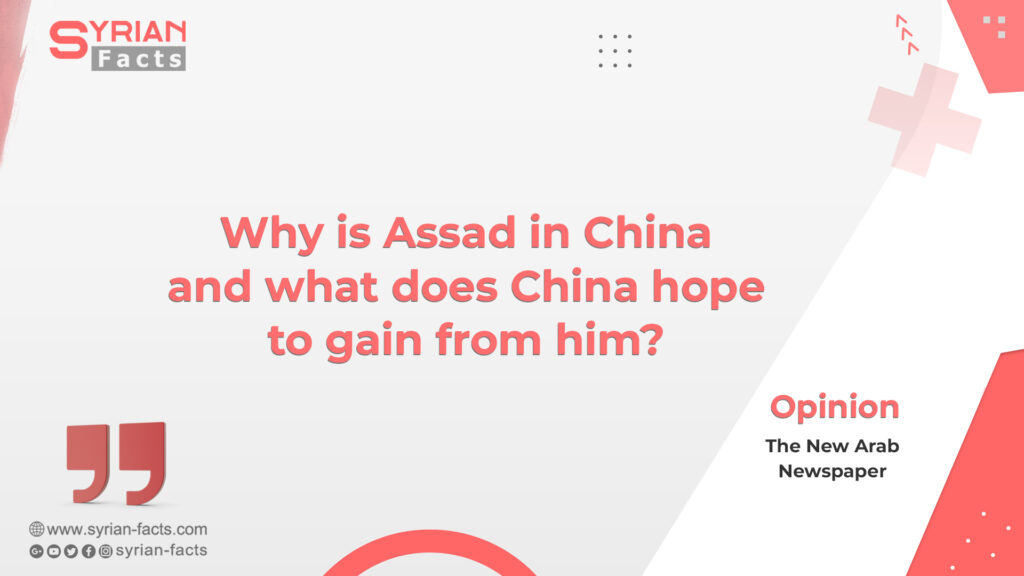Assad’s visit to China is his first to the Asian country since 2004, who has remained an ally to the regime throughout the deadly civil war in Syria.
Syrian President Bashar al-Assad has arrived in China’s eastern city of Hangzhou, kicking off his first visit to the Asian nation since 2004 as he makes further attempts to end more than a decade of diplomatic isolation amid Western sanctions.
Assad arrived aboard an Air China plane amid heavy fog, which Chinese state media said “added to the atmosphere of mystery” in a nod to the fact the regime leader has seldom been seen outside his country since the start of a brutal civil war that has killed more than 500,000 people and displaced millions more.
He is set to attend the opening ceremony of the Asian Games, along with more than a dozen foreign dignitaries, before leading a delegation for a series of meetings in several Chinese cities, including a summit with President Xi Jinping.
Assad will meet Xi on Friday, a day before the Syrian president attends the opening of the games, said a source from the Syrian delegation, which is scheduled to hold other meetings in Beijing on Sunday and Monday.
Being seen alongside China’s president at a regional gathering should add further impetus to the Syrian regime’s campaign to slowly return to the world stage.
It joined China’s Belt and Road Initiative in 2022 and was re-admitted in May to the 22-nation strong Arab League, in a move spearheaded by Saudi Arabia.
The regime’s restoration to the Arab fold was met with opposition from Gulf ally the United States, which said that it “does not merit” a return to the Arab League.
Assad last visited China in 2004 to meet then-President Hu Jintao. It was the first visit by a Syrian head of state since diplomatic ties were established in 1956.
China, like Syria’s main allies, Russia and Iran, maintained those ties even as other countries isolated Assad over his deadly crackdown on anti-regime demonstrations that erupted in 2011.
Assad’s days-long trip to China will mark one of his longest spells of absence from Syria since the uprising against his rule began.
Assad faces sanctions imposed by Australia, Canada, Europe, Switzerland and the United States, but efforts to apply multilateral sanctions failed to secure unanimous support at the United Nations Security Council, which China and Russia are members of.
China has on at least eight occasions vetoed UN motions condemning Assad’s regime and aimed at bringing to an end the decade-old Syrian conflict that has sucked in neighbours and world powers.
Unlike Iran and Russia however, China has not directly supported the regime’s efforts to regain control of the country.
UN-commissioned investigators have said Russian bombing and Iran-backed militias are responsible for the bulk of the hundreds of thousands of civilian deaths since the war began, which has triggered refugee and drug smuggling crises that the Arab League is pushing Assad to resolve.
Oil assets
Syria has strategic importance for China as it is located between Iraq, which provides about a tenth of China’s oil, Turkey, the terminus of economic corridors stretching across Asia into Europe, and Jordan, which often mediates regional disputes.
While Syria is a relatively small oil producer, oil revenue is pivotal to the Assad regime.
In 2008 and 2009, state Chinese energy majors Sinopec Corp, Sinochem and CNPC invested a combined $3 billion in Syria, spurred by a call from Beijing to acquire global oil and gas assets.
Investments included Sinopec’s $2-billion acquisition of Tanganyika Oil, a small producer of heavy oil, and Sinochem’s nearly $900-million purchase of London-headquartered Emerald Energy, whose assets were primarily in Syria and Colombia.
Sinochem stopped operations in Syria in 2011, according to its partner Gulfsands Petroleum.
Around 2014, CNPC, which was involved in producing oil at several small blocks, also ceased production, following European Union sanctions and US deployment to Syria to combat Islamic State, company officials said.
(Reuters and The New Arab Staff)





Be the first to write a comment.